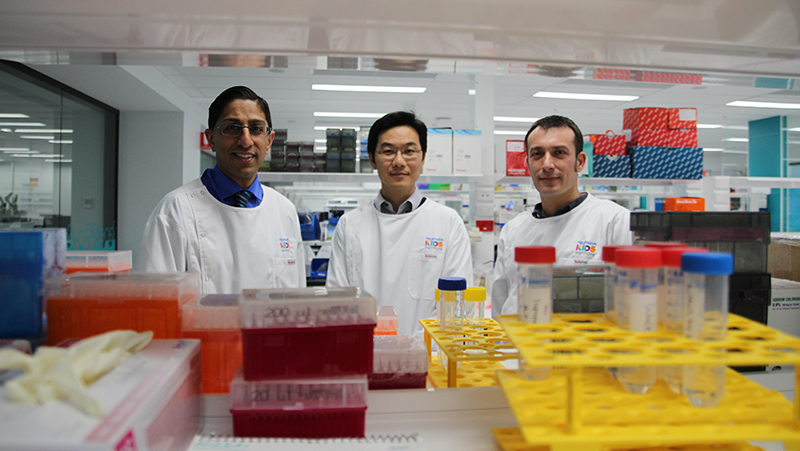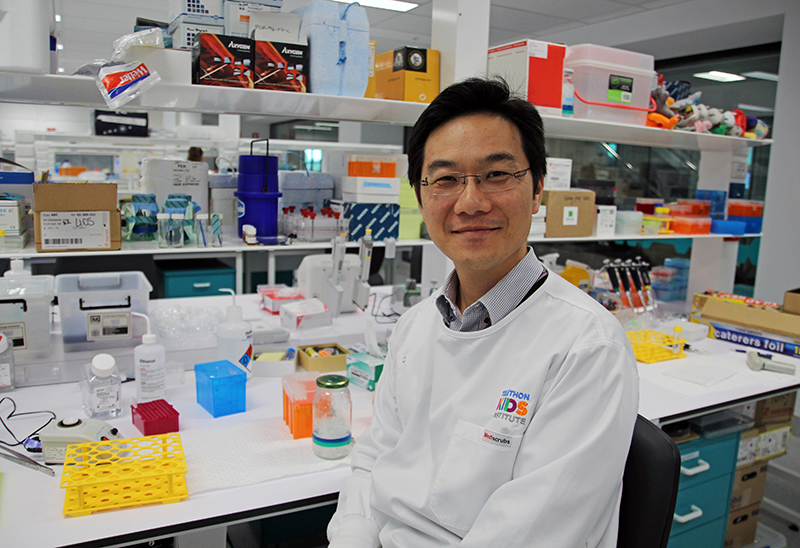Search
Research
Response after one dose of monovalent influenza A (H1n1) 2009 vaccine in infants and children - preliminary reportTo assess the immunogenicity and safety of a 2009 influenza A(H1N1) vaccine in children.
Research
Therapeutic opportunities from dissecting the pre-B leukaemia bone marrow microenvironmentLaurence Rishi S. Sébastien Cheung Kotecha Malinge BPharm (Hons) MBA PhD MB ChB (Hons) MRCPCH FRACP PhD PhD Co-Head, Leukaemia Translational Research
Research
Comparison of a rapid antigen test with nucleic acid testing during cocirculation of pandemic influenza A/H1N1 09 and Seasonal influena A/H3N2The rapid diagnosis of influenza is critical in optimizing clinical management. Rapid antigen tests have decreased sensitivity in detecting pandemic influenza.
Research
The role of chronic infection in children with otitis media with effusion: Evidence for intracellular persistence of bacteriaDemonstrate mucosal bacterial infection in children with otitis media with effusion (OME).
Research
Human Papillomavirus vaccination for the prevention of cervical neoplasia: is it appropriate to vaccinate women older than 26?Cervical cancer mortality has been reduced in Australia because of effective screening programs, but there are still about 800 new cases...
Research
A DTPa-HBV-IPV vaccine for primary vaccination of infantsCombined vaccines have an increasingly important role to play in delivering these antigens acceptably.

News & Events
Lightening the leukaemia load for kids with Down syndromeKids born with Down syndrome are at high risk of an array of health problems. One of the lesser-known complications is their increased risk of childhood leukaemia.

News & Events
Working to end childhood cancer: A father’s storyDr Laurence Cheung is doing everything he can to end the threat of childhood leukemia. His research has the potential to change countless lives, but he also has another important job – being a dad to three beautiful children.
